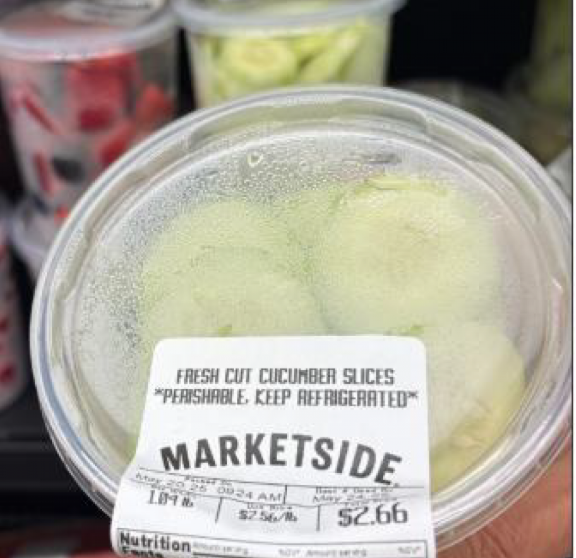The FDA reported that Walmart Inc. is voluntarily recalling Marketside Fresh Cut Cucumber Slices, produced in select stores located in Texas, because of the potential for Salmonella contamination. The recall was initiated because this product may contain recalled whole cucumbers supplied by Bedner Growers, Inc.(Boynton Beach, FL), which initiated a recall after the FDA notified Bedner Growers Inc. that the cucumbers described above were associated with reported salmonellosis illnesses. To date, no illnesses have been reported for the recalled Marketside Fresh Cut Cucumber Slices. The Marketside Fresh Cut Cucumber Slices were produced in select stores located in Texas between May 13th, 2025, and May 20th, 2025. @ https://www.fda.gov/safety/recalls-market-withdrawals-safety-alerts/walmart-inc-recalls-marketside-fresh-cut-cucumber-slices-select-texas-stores-because-possible-health




